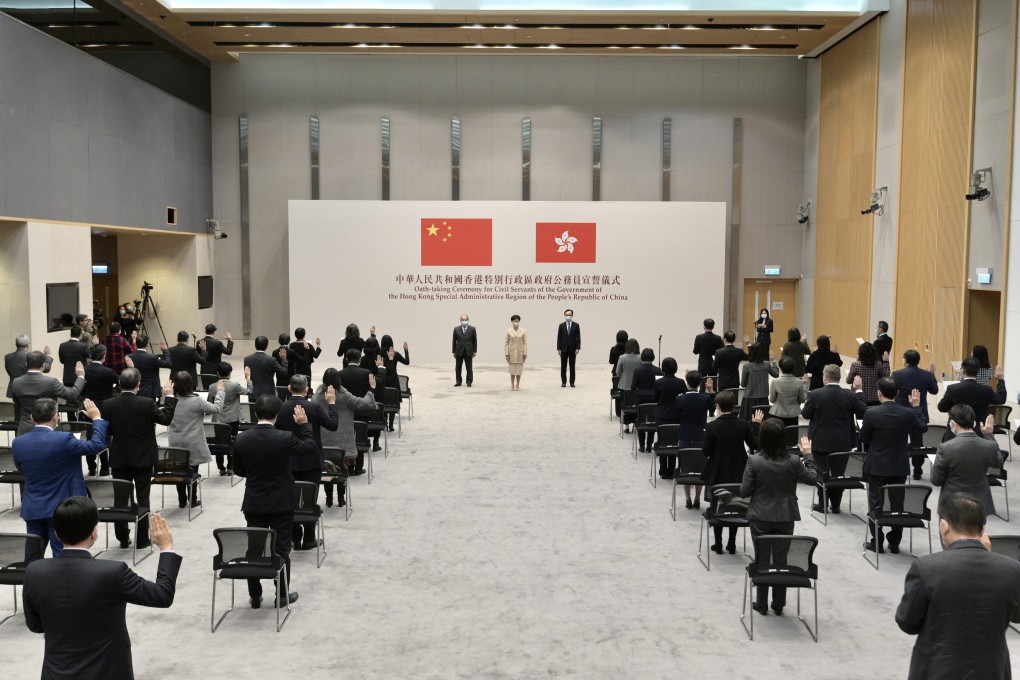Letters | Hong Kong’s bloated civil service could do with more than a spending trim
- The issue was ignored during the fat surplus years but with deficits looming amid an economic downturn, it’s time to take a good hard look at public expenditure

With reference to the report prepared by the Working Group on Long-Term Fiscal Planning in 2014, there are several recommended principles that the government should consider again for future budgets, including:
1) that the operating expenditure should not exceed 90 per cent of the operating revenue. Surpluses in the operating account may help meet shortfalls in the capital account or may be retained as a reserve, rather than being spent right away;
2) that the capital account (primarily funding capital works expenditure) should be segregated from the operating account and should strive to stay within the limits of capital revenue (primary revenue from land disposals); and
3) that the government should contain overall government expenditure growth within the forecast nominal gross domestic product growth rates and keep the public expenditure at or around 20 per cent of GDP.
